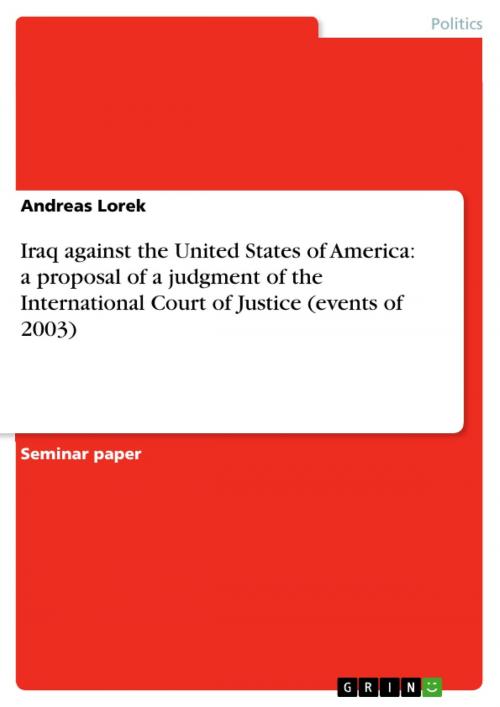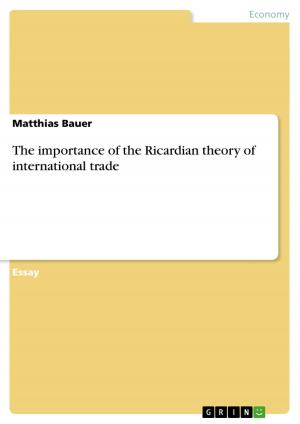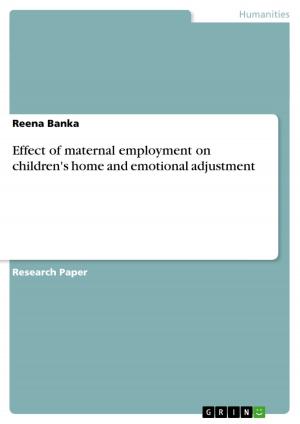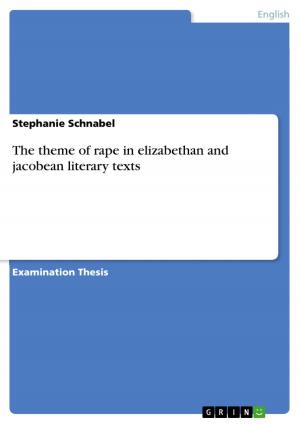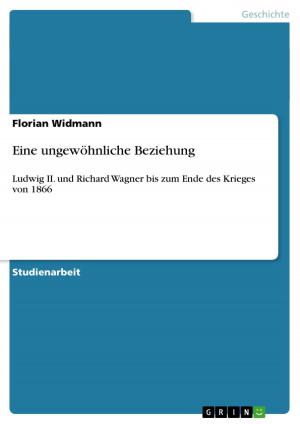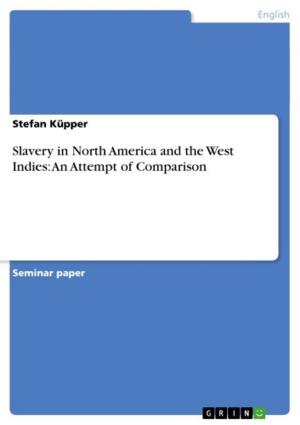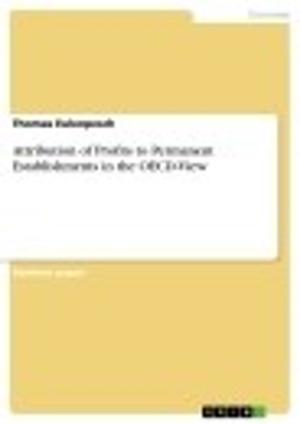Iraq against the United States of America: a proposal of a judgment of the International Court of Justice (events of 2003)
Nonfiction, Social & Cultural Studies, Political Science, International, International Security| Author: | Andreas Lorek | ISBN: | 9783638586900 |
| Publisher: | GRIN Publishing | Publication: | December 30, 2006 |
| Imprint: | GRIN Publishing | Language: | English |
| Author: | Andreas Lorek |
| ISBN: | 9783638586900 |
| Publisher: | GRIN Publishing |
| Publication: | December 30, 2006 |
| Imprint: | GRIN Publishing |
| Language: | English |
Seminar paper from the year 2005 in the subject Politics - International Politics - Topic: Peace and Conflict Studies, Security, grade: 1,3, University of Poznan, course: International Judicial System, 24 entries in the bibliography, language: English, abstract: 'The International Court of Justice established by the Charter of the United Nations [is] the principal judicial organ of the Unirted Nations'is laid down in article 1 of the Statute of the International Court of Justice (ICJ). The ICJ consists of 15 international judges of high moral character who are elected by the General Assembly (GA) and the Security Council of the United Nations (UNSC). It is not permitted to have two judges of the same nationality in the Court. Judges are elected for nine years, re-election for another period is possible. Every three years elections will be held in which five judges are chosen. If the bench of judges does not include one with the nationality of a state of the dispute, this state can appoint a person to sit ad hoc for this case. The seat of the ICJ is at the Peace Palace in The Hague, Netherlands, nevertheless it is possible to exercise its functions elsewhere. The ICJ has two main functions: it has to settle legal disputes submitted to the Court in accordance with international law and secondly it has to give advisory opinions on legal questions (ICJ 2005a). Only states can be parties in front of the ICJ. It is open to all states that have ratified the Statute, conditions for other states can be made by the UNSC. Article 36 of the Statute of the ICJ makes clear that'the jurisdiction of the Court comprises all cases which the parties refer to it and all matters specially provided for in the Charter of the United Nations'.All Members of the UN are as well parties to the ICJ, as laid down in Article 93 of the Charter of the United Nations (UN). A dispute could be brought to the attention of the ICJ by any member of the UN (Charter of the UN: Article 35.1) or a party to the dispute (Charter of the UN: Article 35.2). The UNSC is like the ICJ a principal body of the UN. These two bodies often have to act in correlation, a complete separation of powers does not exist. Their functions are complementary (cp. Skubiszewski 1996). States have the opportunity to accept the jurisdiction of the ICJ generally in respect of all occurring disputes or only particular ones. A general acceptance of the ICJ needs a declaration from a state which is party to the present Statute (Statute of the ICJ: Article 36.2).
Seminar paper from the year 2005 in the subject Politics - International Politics - Topic: Peace and Conflict Studies, Security, grade: 1,3, University of Poznan, course: International Judicial System, 24 entries in the bibliography, language: English, abstract: 'The International Court of Justice established by the Charter of the United Nations [is] the principal judicial organ of the Unirted Nations'is laid down in article 1 of the Statute of the International Court of Justice (ICJ). The ICJ consists of 15 international judges of high moral character who are elected by the General Assembly (GA) and the Security Council of the United Nations (UNSC). It is not permitted to have two judges of the same nationality in the Court. Judges are elected for nine years, re-election for another period is possible. Every three years elections will be held in which five judges are chosen. If the bench of judges does not include one with the nationality of a state of the dispute, this state can appoint a person to sit ad hoc for this case. The seat of the ICJ is at the Peace Palace in The Hague, Netherlands, nevertheless it is possible to exercise its functions elsewhere. The ICJ has two main functions: it has to settle legal disputes submitted to the Court in accordance with international law and secondly it has to give advisory opinions on legal questions (ICJ 2005a). Only states can be parties in front of the ICJ. It is open to all states that have ratified the Statute, conditions for other states can be made by the UNSC. Article 36 of the Statute of the ICJ makes clear that'the jurisdiction of the Court comprises all cases which the parties refer to it and all matters specially provided for in the Charter of the United Nations'.All Members of the UN are as well parties to the ICJ, as laid down in Article 93 of the Charter of the United Nations (UN). A dispute could be brought to the attention of the ICJ by any member of the UN (Charter of the UN: Article 35.1) or a party to the dispute (Charter of the UN: Article 35.2). The UNSC is like the ICJ a principal body of the UN. These two bodies often have to act in correlation, a complete separation of powers does not exist. Their functions are complementary (cp. Skubiszewski 1996). States have the opportunity to accept the jurisdiction of the ICJ generally in respect of all occurring disputes or only particular ones. A general acceptance of the ICJ needs a declaration from a state which is party to the present Statute (Statute of the ICJ: Article 36.2).
